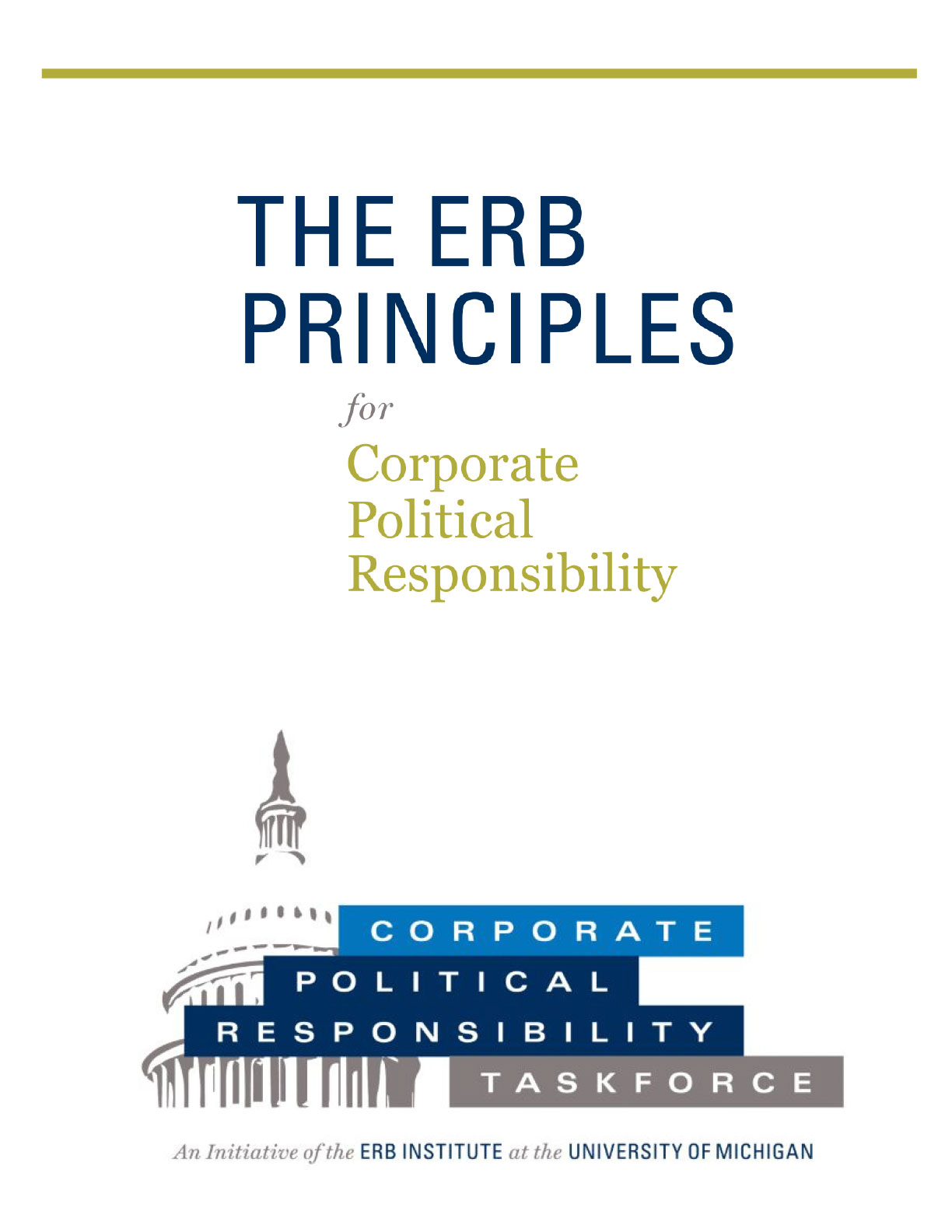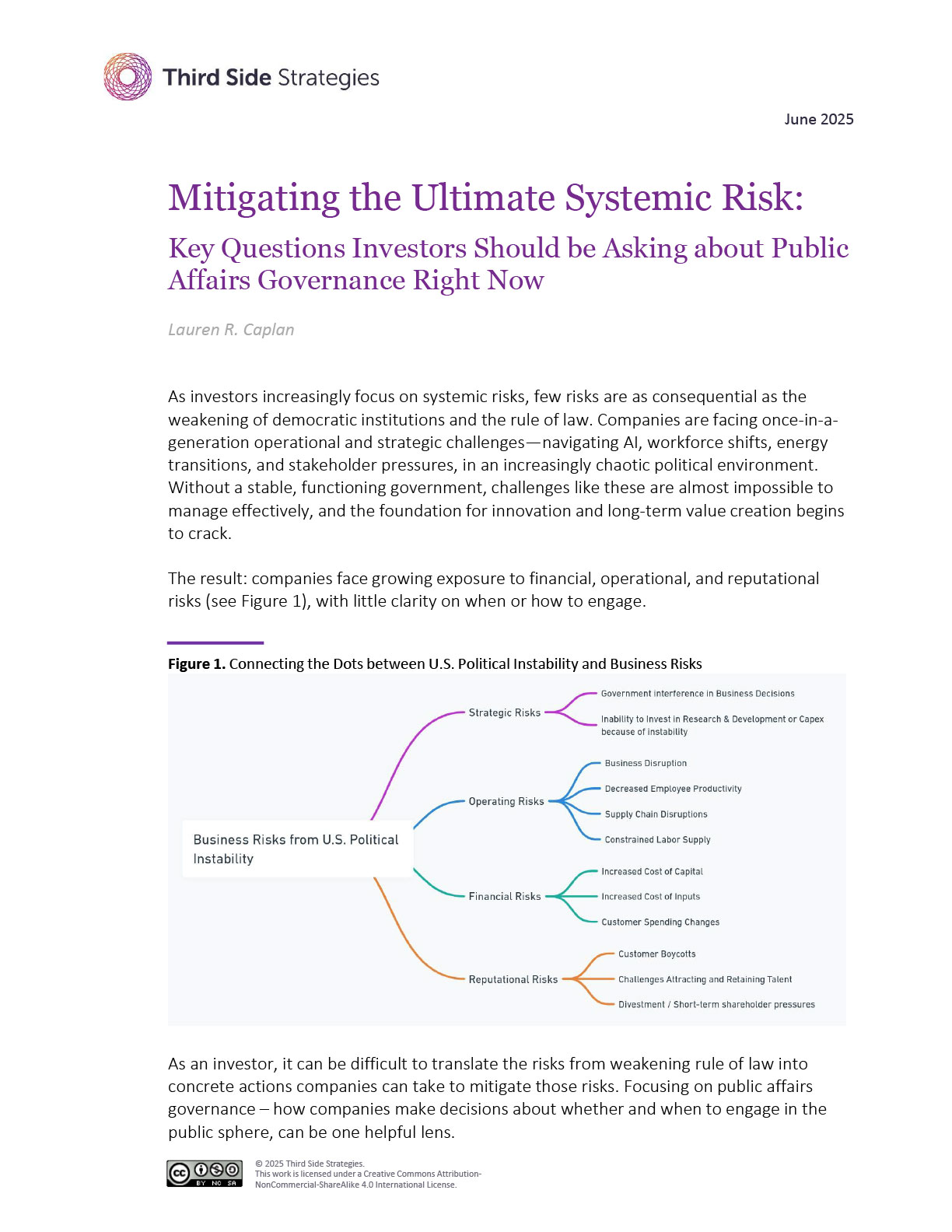Do you have a resource to recommend for The CPR Hub? Please reach out and we will review it for future updates!

The Erb Principles for Corporate Political Responsibility
Developed with Erb Institute’s Corporate Political Responsibility Taskforce, in consultation with academics and over 40 stakeholder groups from across the political spectrum, the Erb Principles for CPR offer a thought process for non-partisan, defensible decisions in turbulent times. The principles of legitimacy, accountability, responsibility, and transparency provide actionable and non-partisan approach to weighing when, how and why to engage in political affairs, to manage risk and advance long-term value creation for business and society.


